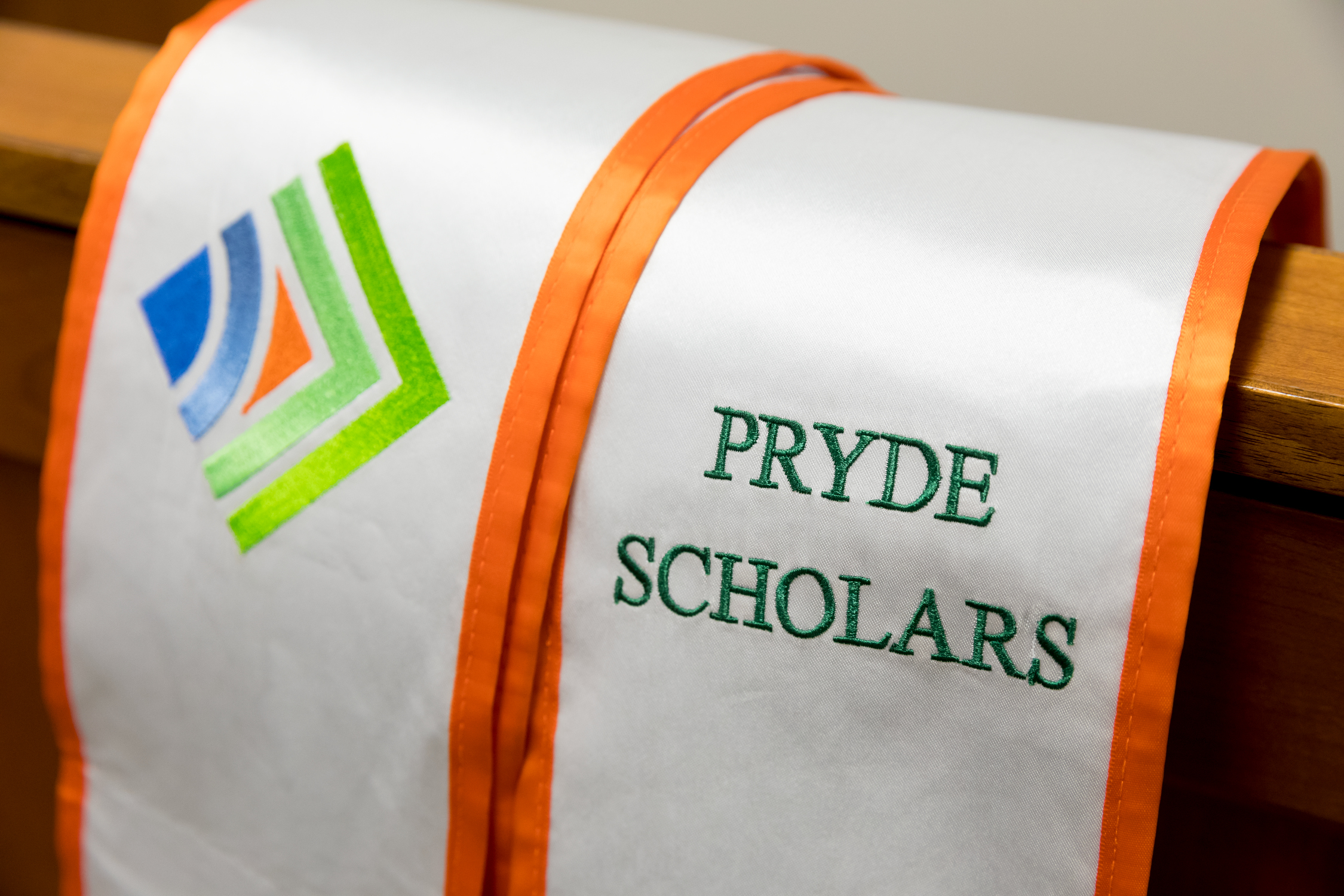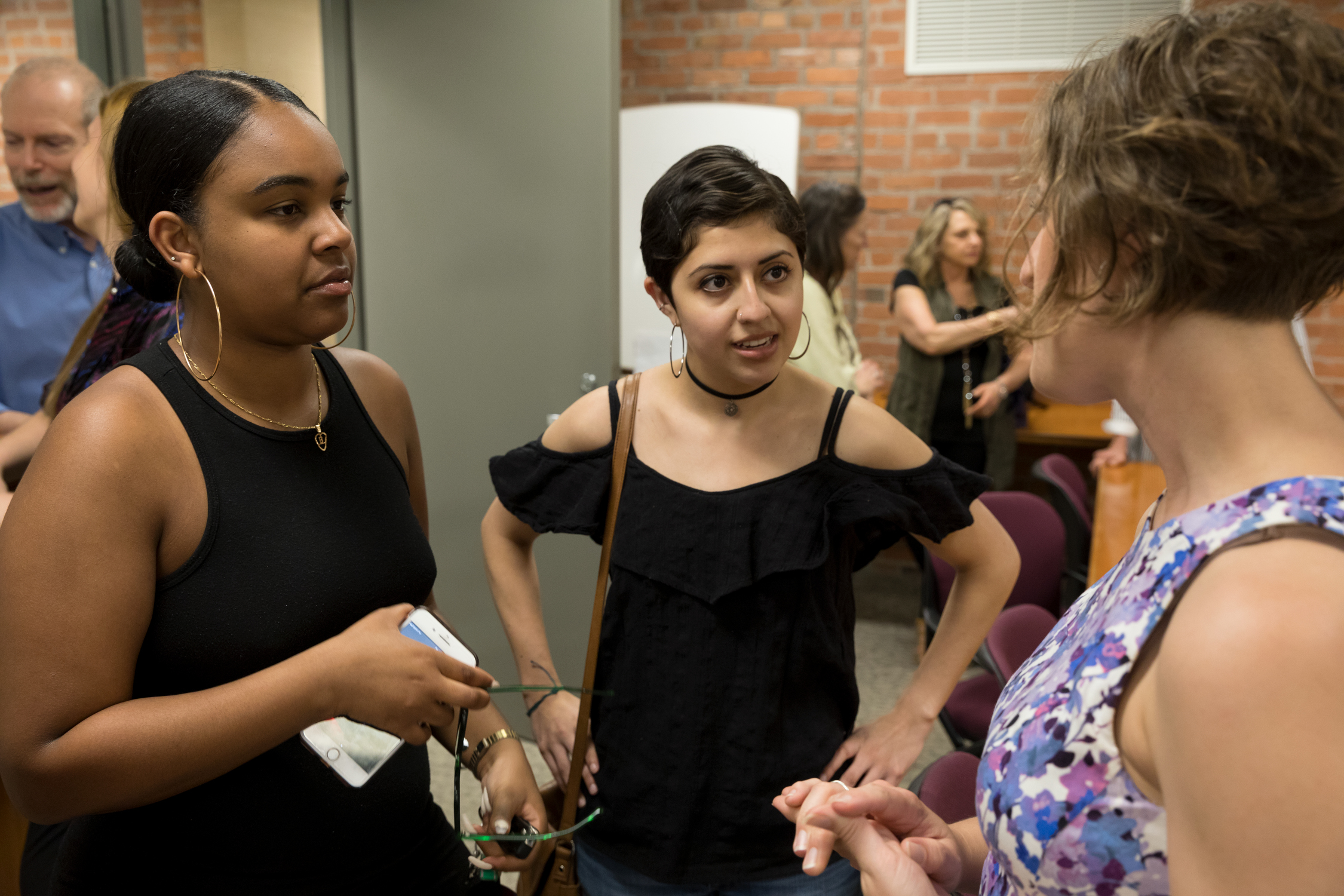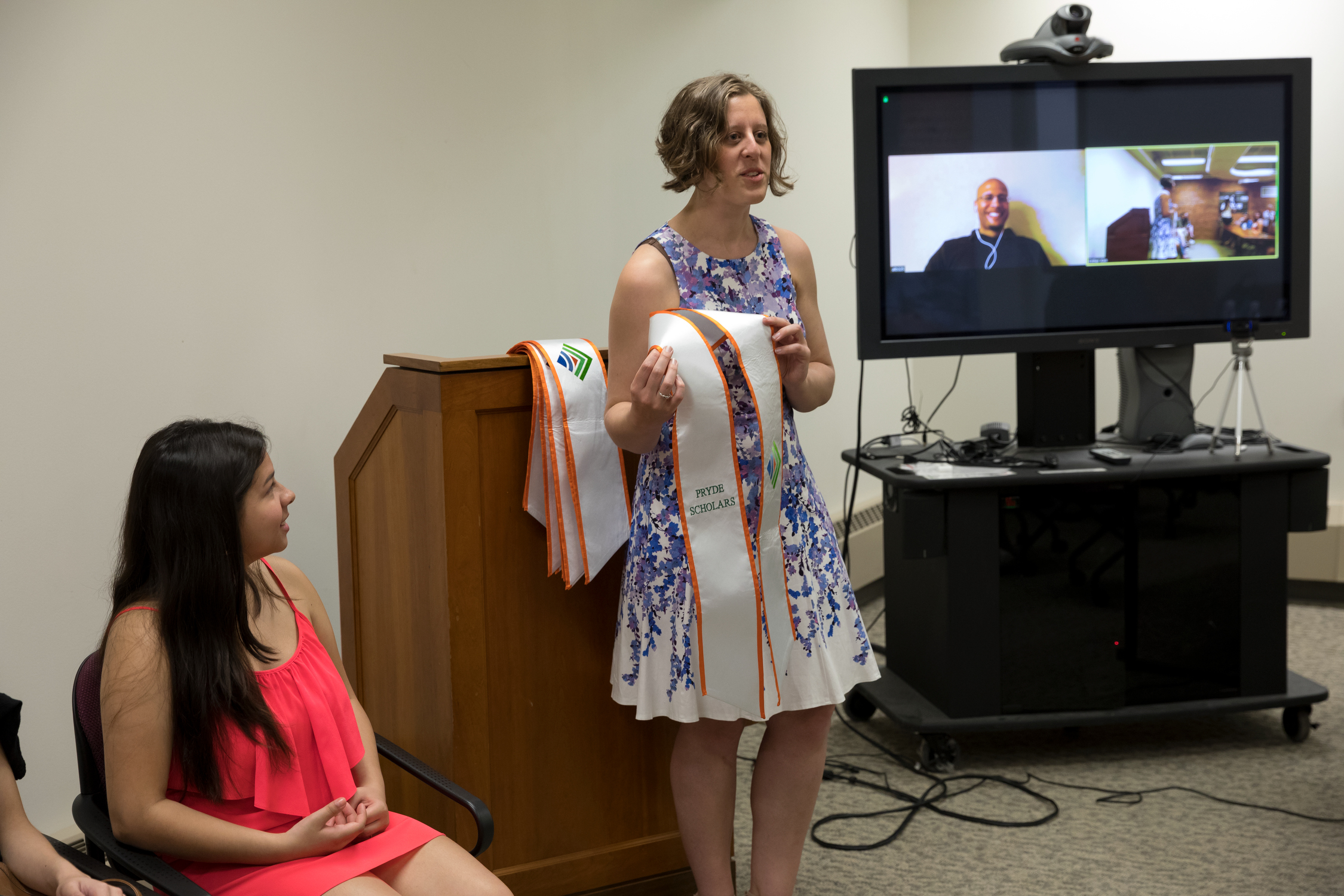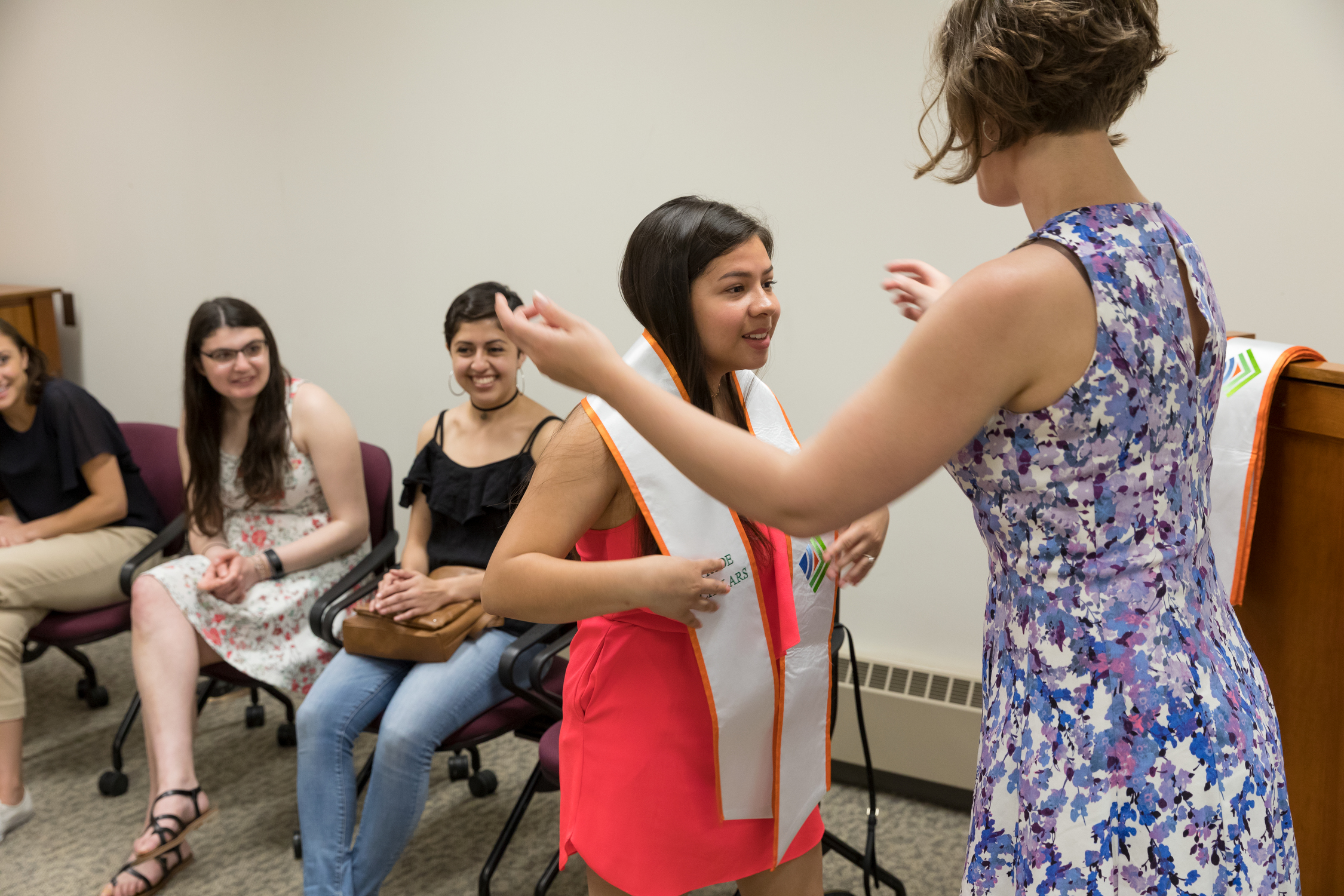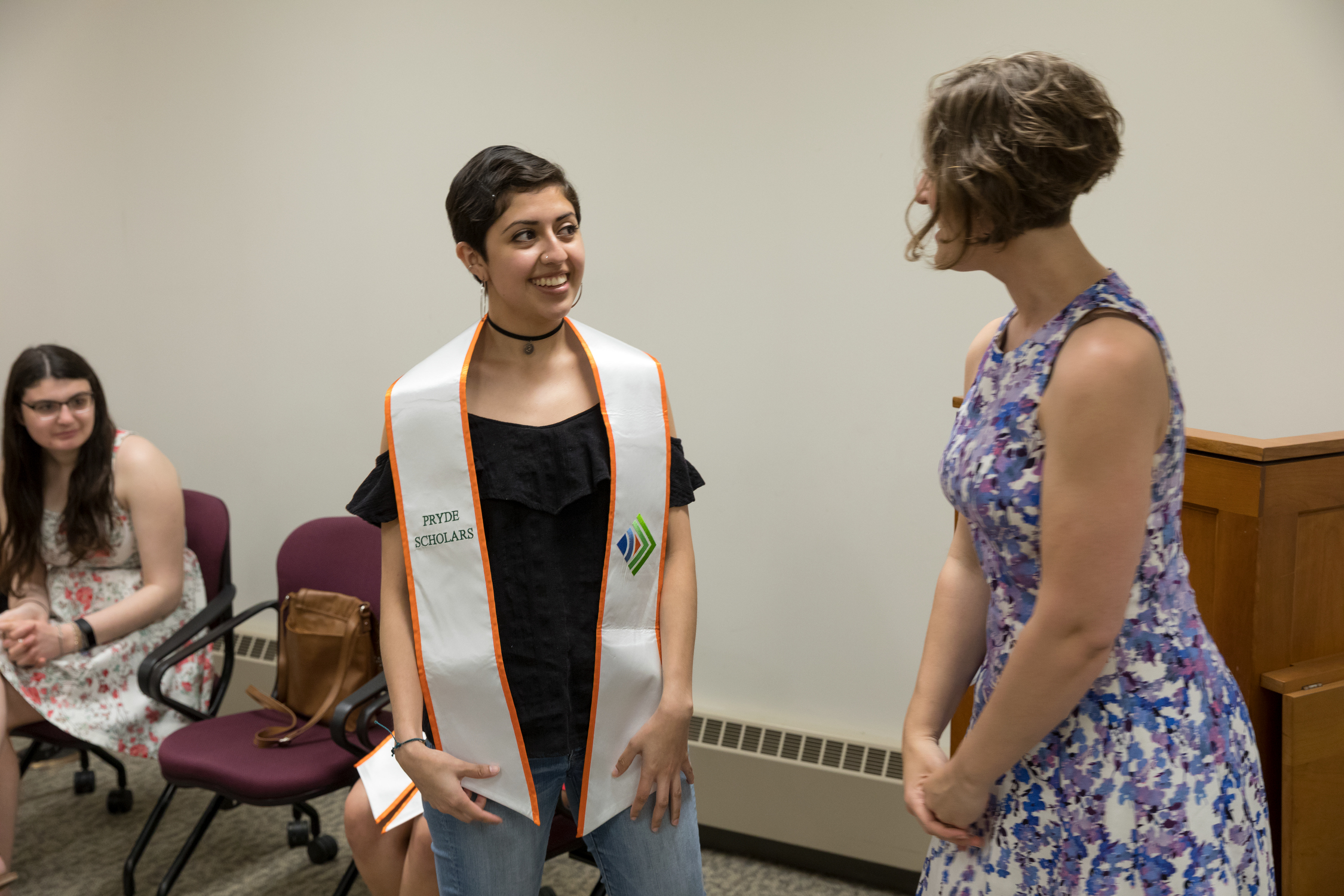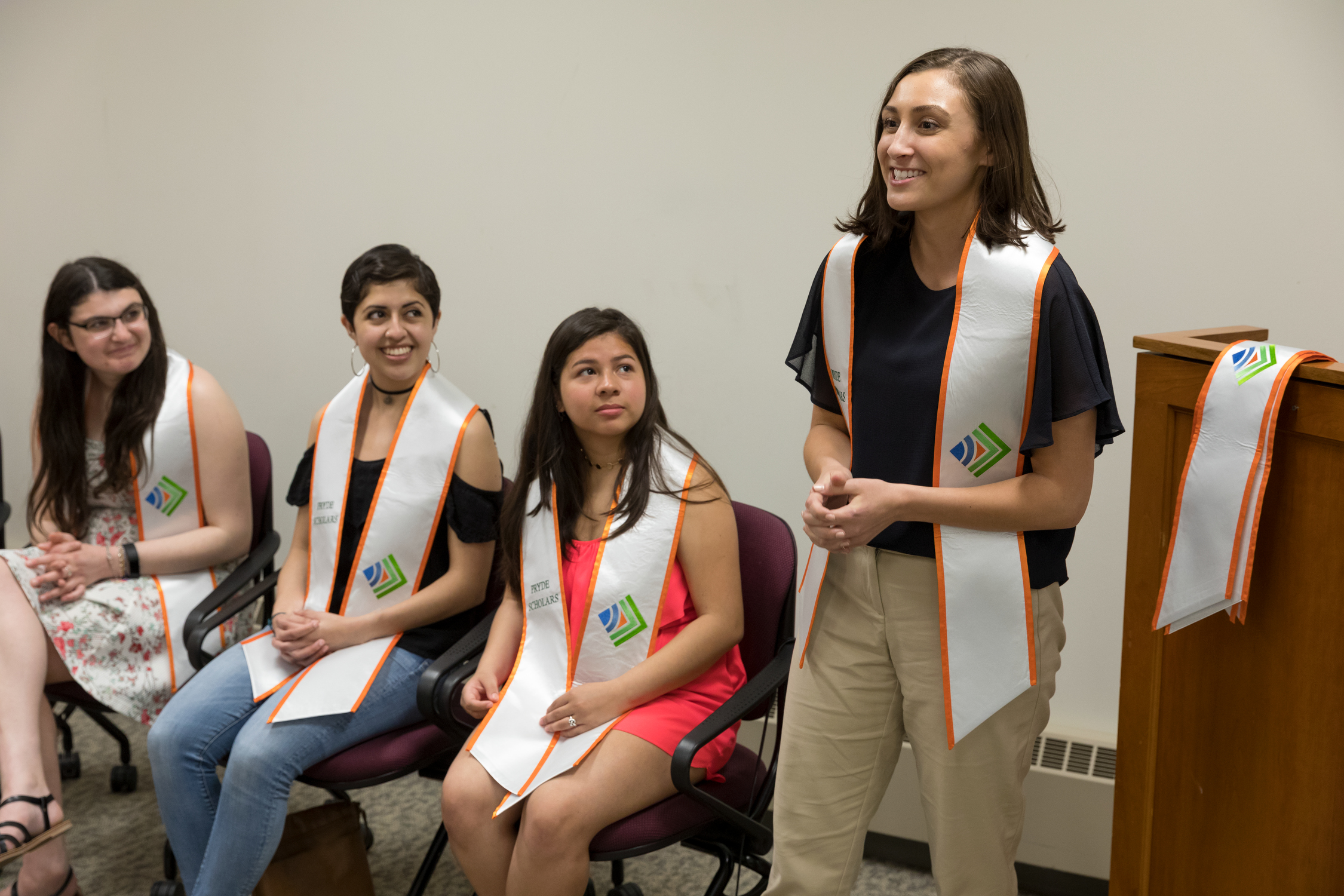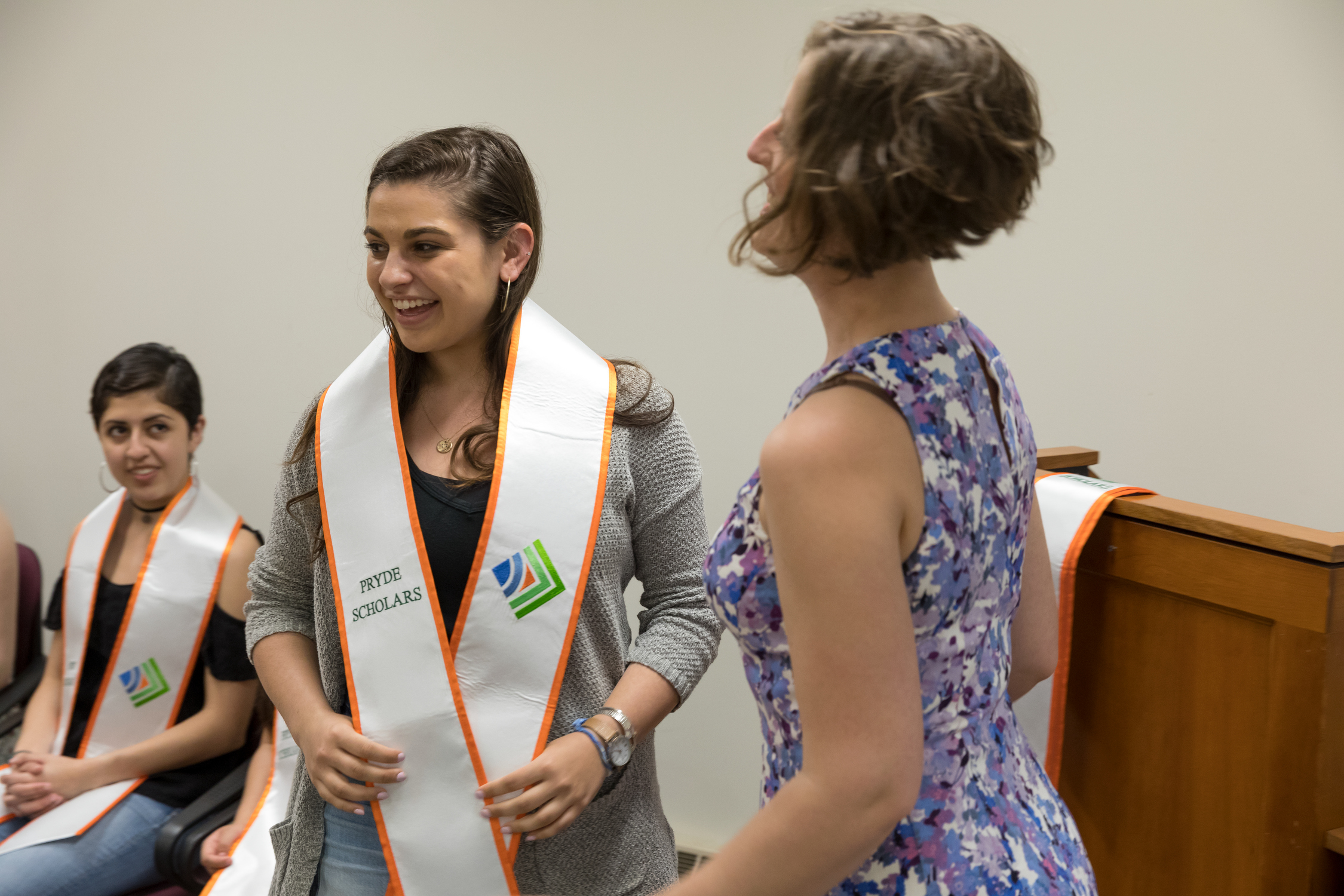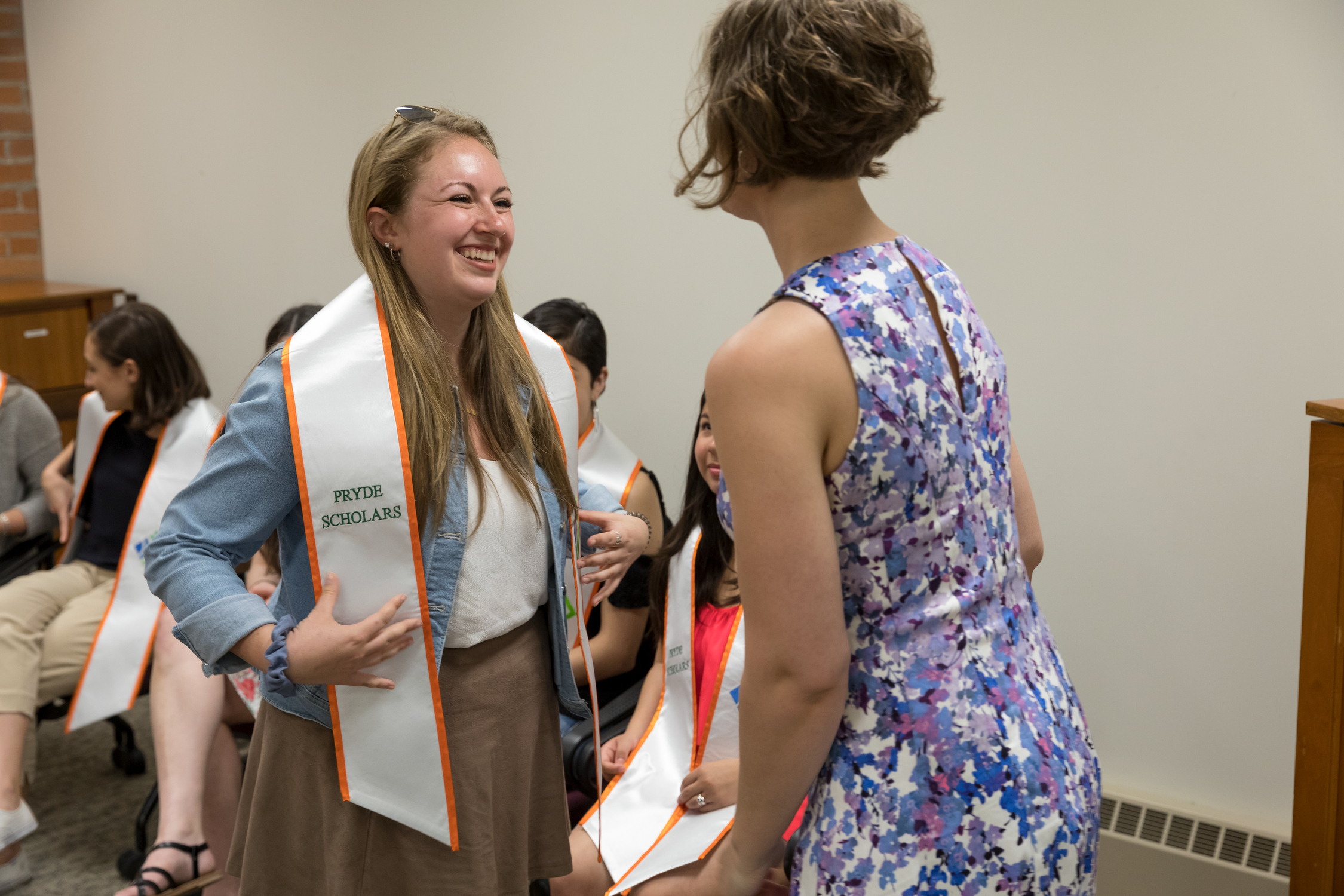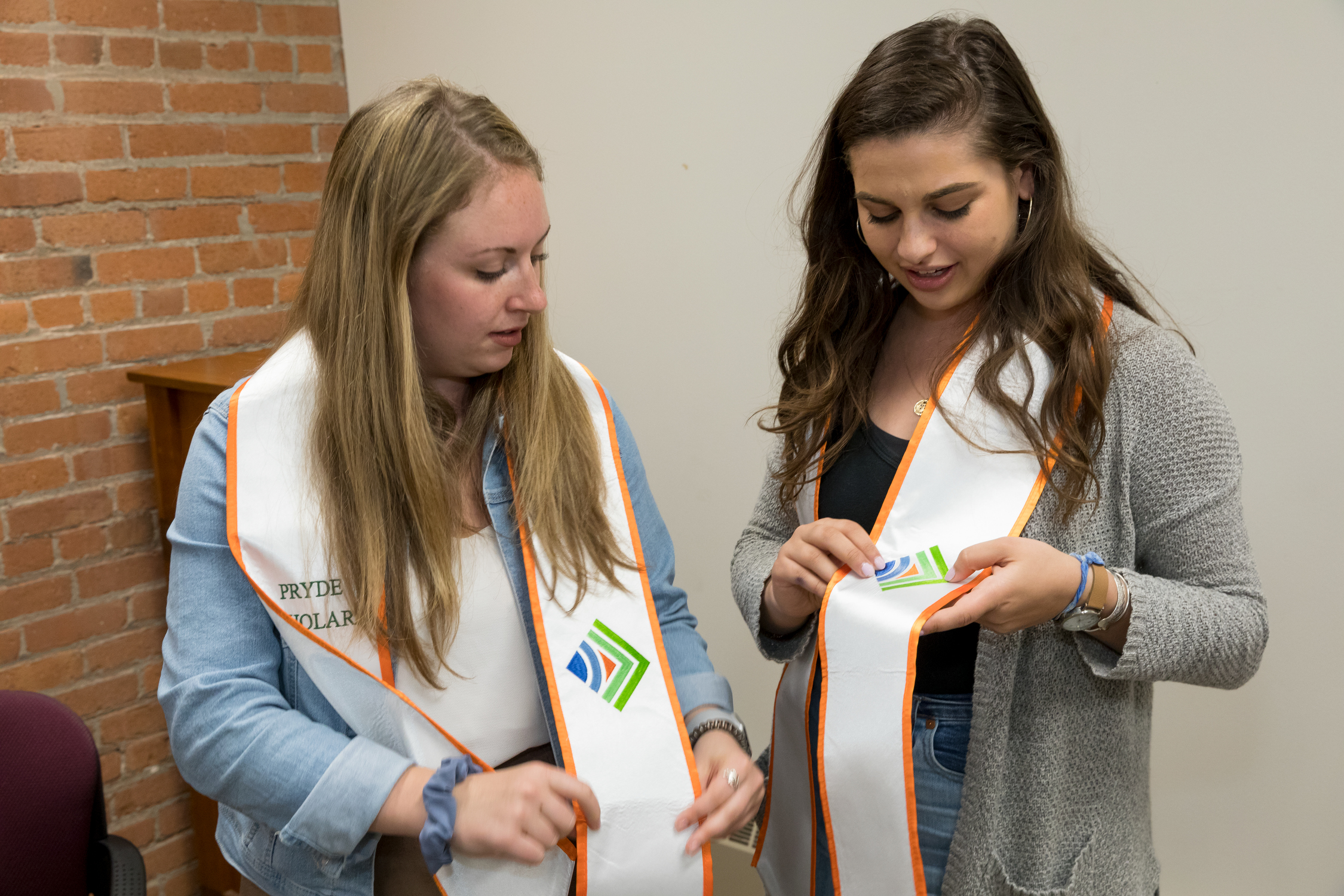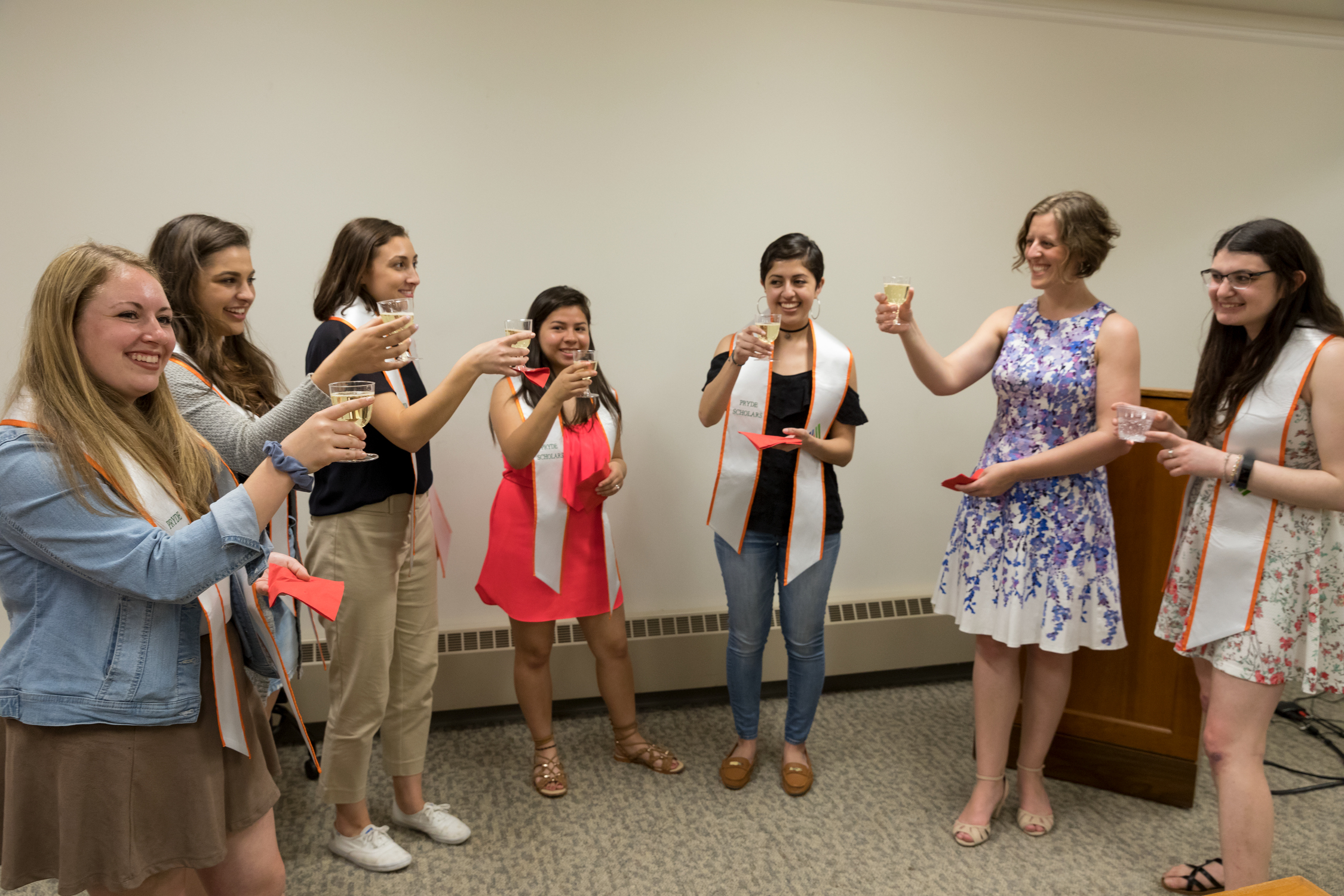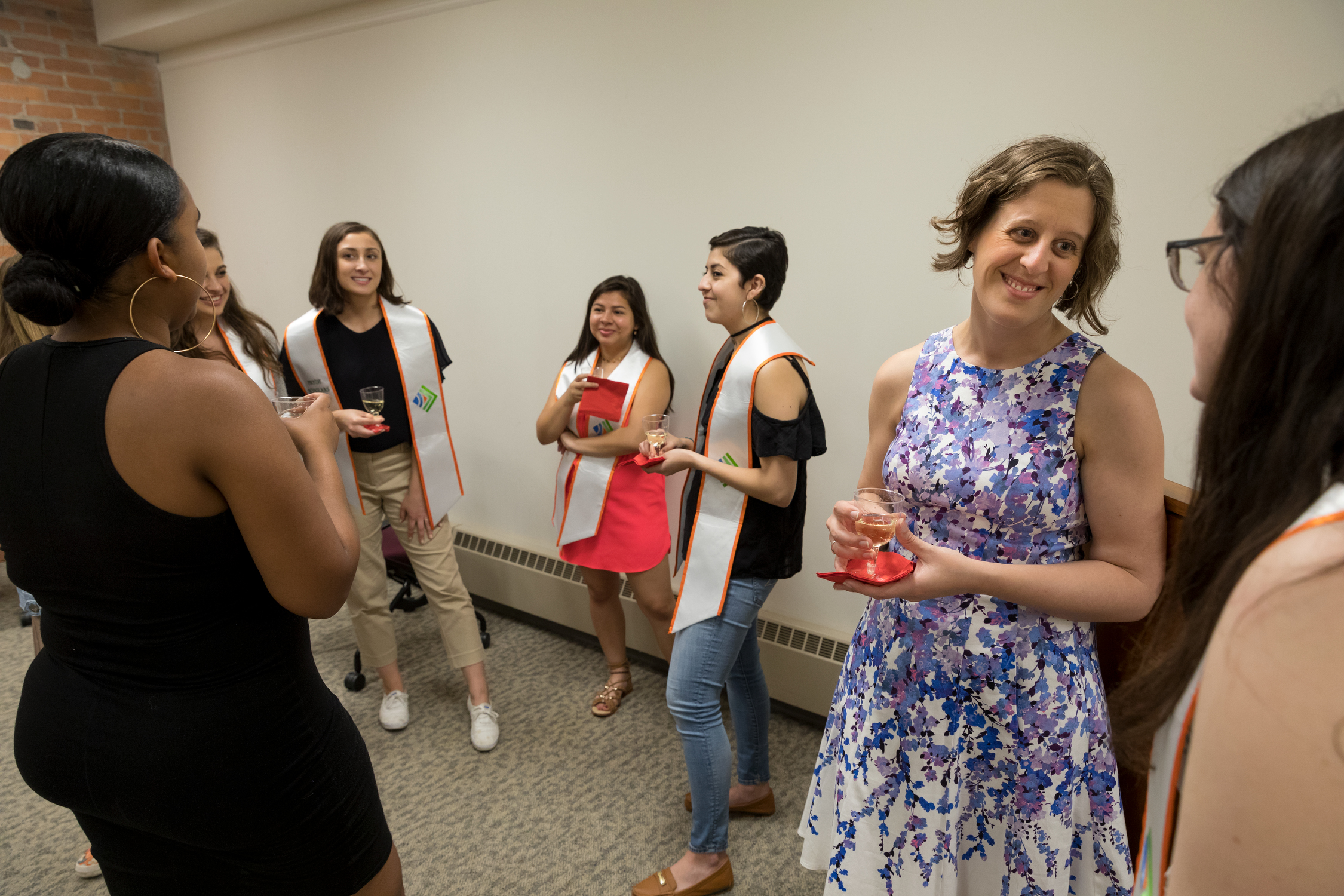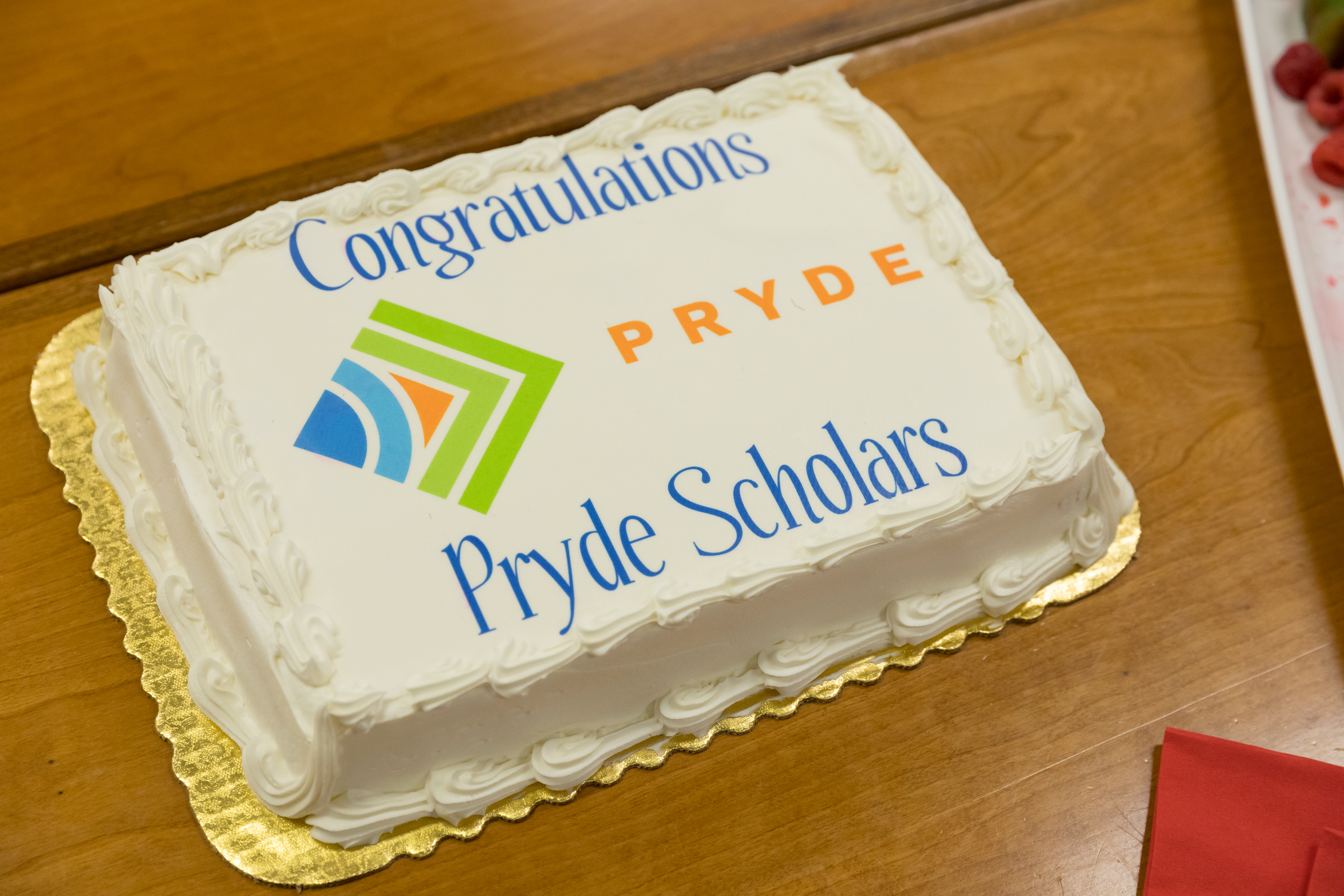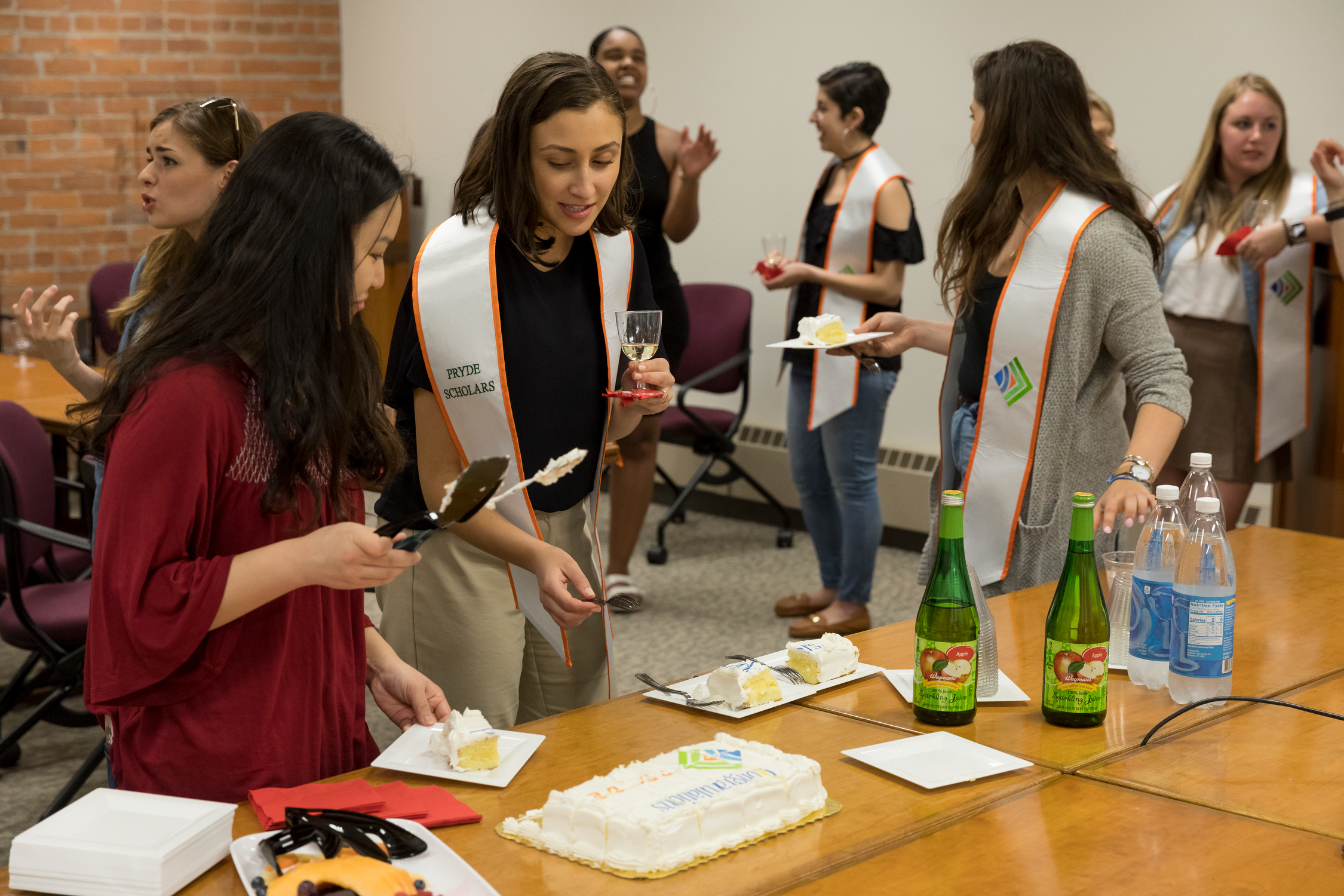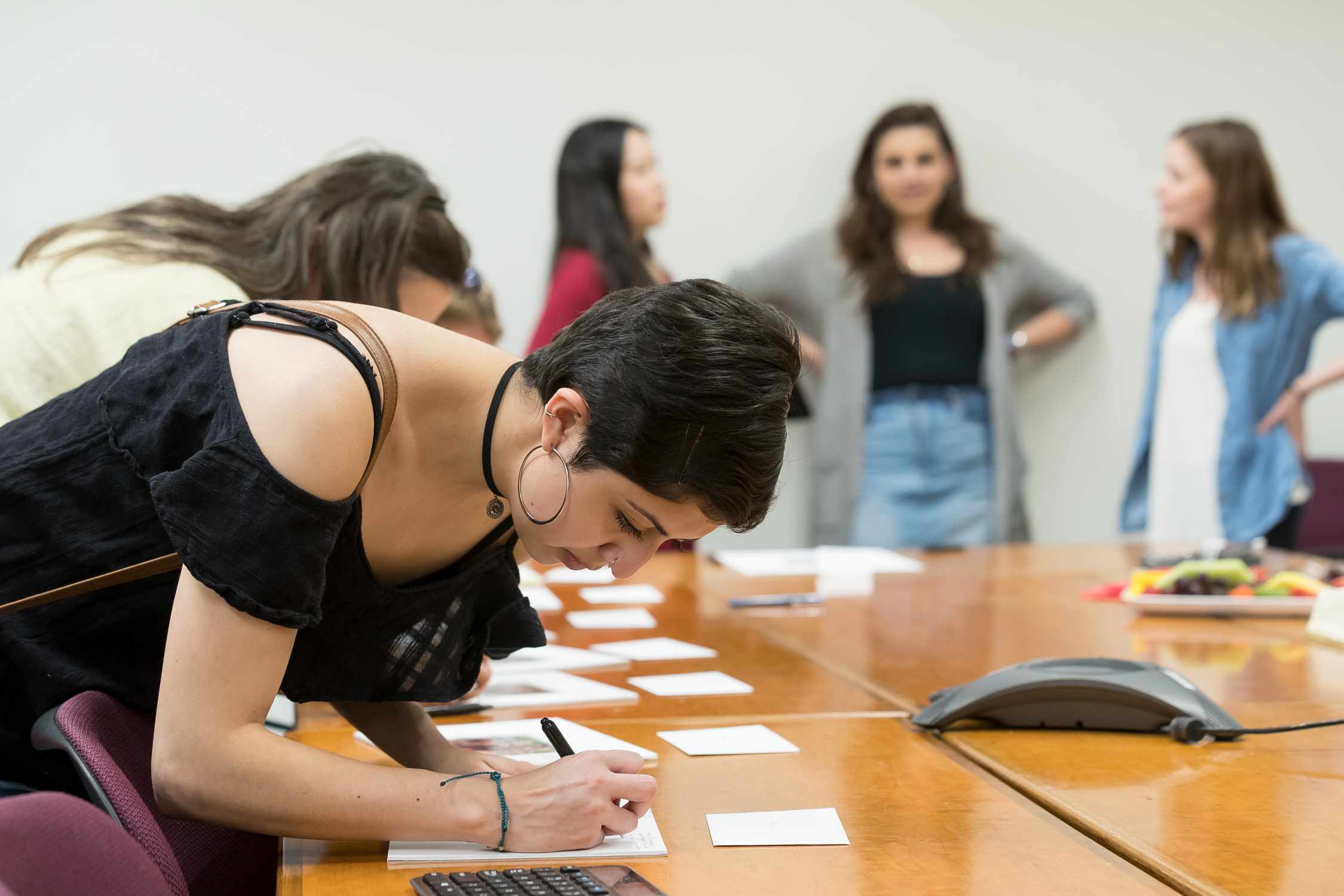First cohort of PRYDE Scholars graduates!
Graduating PRYDE Scholars: Saige Connor, Julia Lesnick, Monica Wassel, Jen Agans (PRYDE assistant director), Emily Rosenthal, Rosario Majano, and Vanessa Chicas (not pictured, Greta Sloan)
The first cohort of PRYDE Scholars, now seniors, celebrated the successful completion of their two-year program on May 17th. Each scholar received a PRYDE graduation stole and was recognized for her efforts in learning about and doing translational research for four semesters at Cornell. Faculty mentors, parents, friends, and PRYDE staff all gathered at the event to celebrate their achievements.
The PRYDE Scholars program gives select rising juniors in the College of Human Ecology the unique opportunity to learn about and actually do translational research in youth development, fostering interest and excitement in the translational process. Because there are limited opportunities for undergads do hands-on research, the program offers a rare chance for undergraduates to be trained in translational methods and to make connections with the broader New York State community by working directly with New York State 4-H practitioners.
For each of the four semesters of the program, the Scholars enroll in a course taught by Dr. Jen Agans, PRYDE’s assistant director, to be trained in translational research methods. Last semester, the scholars transformed research articles into fun comics for easy comprehension and distribution to the public. This year, the senior scholars took on their own research project in which they worked with the PRYDE 4-H Work Team to collect data from nearby counties via surveys regarding program evaluation.
At the senior scholar ceremony, PRYDE’s students said that they gained new insight on how translational work is conducted. Monica Wassel, a nutritional science major who worked with Dr. Karl Pillemer on intergenerational programs, said that she learned to “continuously communicate” with collaborators as a PRYDE scholar. Julia Lesnick, a human development major who worked with Dr. Jane Mendle on healthy adolescent transitions, said that it’s best to “keep focused on the larger goal, but be flexible about how to get there.” The Scholars relayed their growth as researchers and noted their close bond with each other as they worked together to develop skills as community collaborators.


